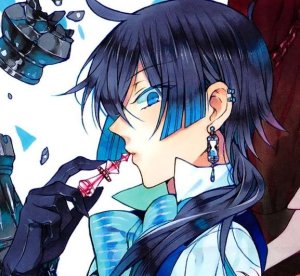I've never given a 10/10 to a drama in this site before, but there's no way I wouldn't give this one that rating. I spent some time trying to figure out how to review this properly, I'm probably going to re-watch the drama soon enough and find more specifics that I may miss now, but I decided to go ahead and do a review now anyway, with my first impressions.
The story revolves around a group of women who start a restaurant led by Tanaka Tamako (played by Maki Yoko) to fulfill the dream of a friend who suffered humiliating abuse at work, to the extent of leaving the city and her career because of it. Each woman represents a different story line centered on the struggles of women in Japanese society: Tamako is a great asset in a company but is overlooked and disrespected for being a woman, Kyoko is a divorced mother whose husband, after years of mistreat, wants to take away custody of her son, Nitta is college graduate overachiever whose qualifications never seem to be enough to get her the respect she deserves in a job, Nanami is a retired career woman (whose job I won't say because it's a surprise) lacking incentive to get back to the world, Chika is a hikikomori suffering severe social anxiety with terrible parents, Haiji is a transgender woman facing the backlash of society (note that there's still not a very clear differentiation between gay men, transgender women and crossdressing men in Japanese media but for all intents and purposes I believe Haiji's character is depicted as a transgender woman rather than a homosexual male, although lacking an explicit categorization) and Airi is a young woman facing a severely sexist environment at work and dealing with internalized misogyny.
This drama tells their perspectives while throwing at you unabashedly how much crap they have to put up with from the sexist society they live in. They encounter men who despise them, men who fear them, men whose ignorance they end up mending a bit, and men who support them (though those are rare). But the story, even though centered on this competition, is more about them and how they learn to deal with it by supporting each other. If you're looking for romance, this is probably not your drama, because couple tropes here are turned around. If you're looking for nice looking ikemen with charming personalities, this is not your drama, because men here are not the point of the story. If you're looking for female friendship, girls supporting girls and great food created as a result, this is the drama for you.
This drama has probably ruined dramas for me. In a good way, if that makes sense. I've had my fair share of dramas in which problematic tropes and social themes get discussed (Hanawake no Yon Shimai and, in a smaller degree, Five Star Tourist, are some examples), but this one did not hold back at all. It reads Japanese social standards for filth. Before this drama, I overlooked overused tropes with problematic notions because "that's how jdramas are" and "I guess that's how society is", even if I was against them and sometimes downright turned off by them so much to stop watching or avoid some dramas for it, but I somewhat expected them to be that way. I expected the toxic relationships being romanticized, I expected the submissive lead to hold her head down, I expected the good-looking-bad-tempered man to treat the lead possessively and make her swoon for that aggression, I expected the use of the "nice guy" as a way to excuse behavior and do outright stalker-ish things which were seen as "romantic", I expected the "crossdressing man trope" to be used for comic relief or fanservice rather than talk about the problems of actual transgender people in Japanese society, I expected the lead to find her place in life by either exceeding in a company and cutting all links to emotions or leaving it all for a husband, I expected all that stuff. This drama showed me they don't have to be like that. You don't have to expect that kind of stuff anywhere. There are better ways to tell a story, more empowering ways, well written and well performed ways. You should ask questions and get upset and demand more. This is the kind of drama I want to see more of and the fact that it didn't get even considered in last year's poll here makes no sense to me.
Was this review helpful to you?





















